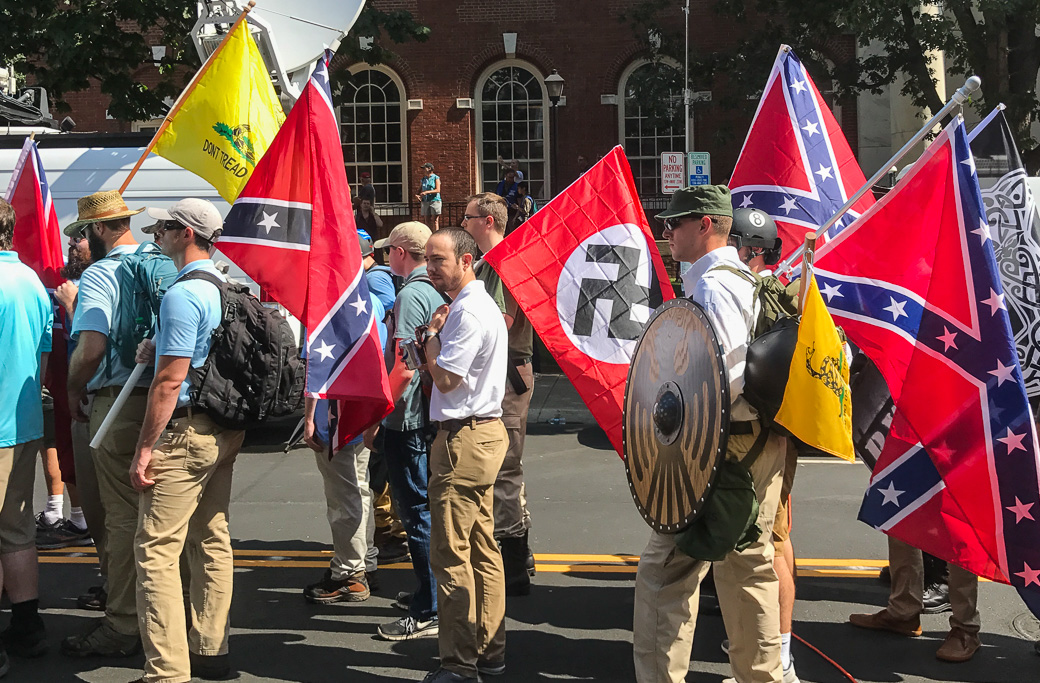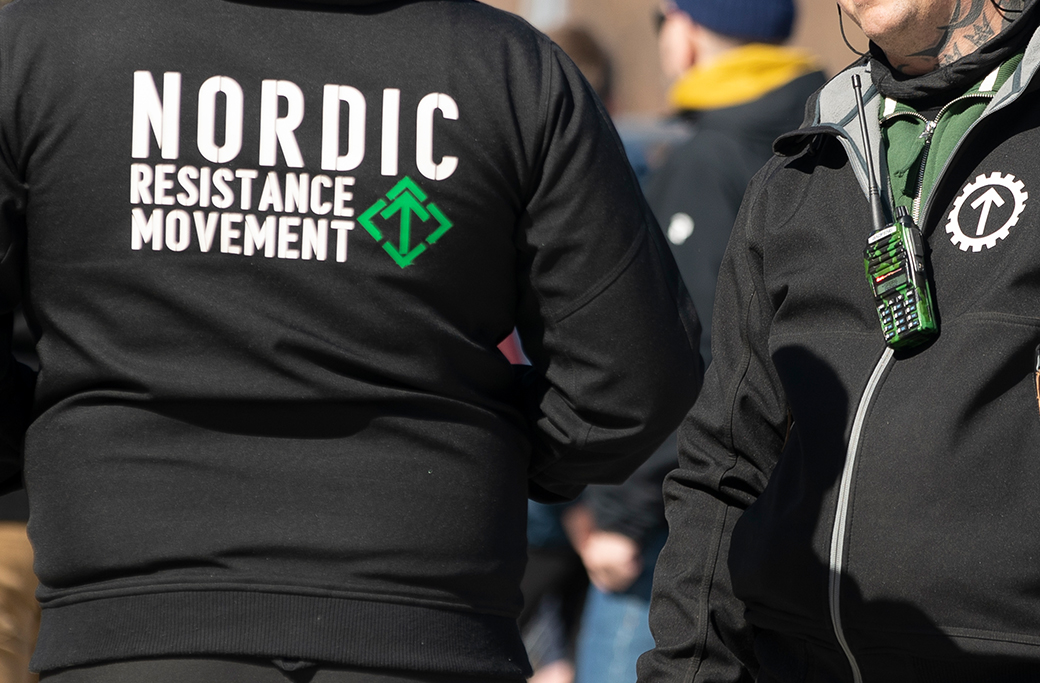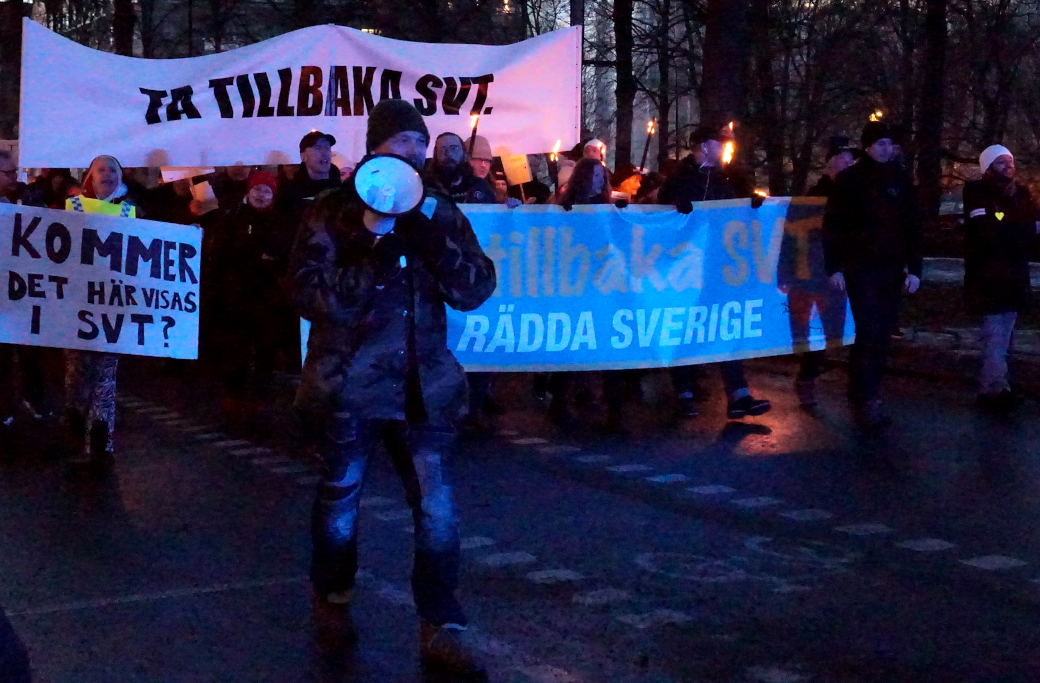
Meet the 25-year old Swede who went undercover to expose the alt-right
Patrik Hermansson, long-time contributor to Expo, spent a year undercover in the British branch of the alt-right movement, on a mission from the anti-fascist organisation Hope not Hate.
The journey took him deep into the heart of the movement – and to the United States.
The result is the most comprehensive report ever on the alt-right movement.
Uppdaterad: 2018-02-20, 15:01
Publicerad: 2017-09-20, 10:08
Lästid: 5 minuter
Du läser just nu gratis innehåll
Ditt stöd hjälper oss bekämpa rasism och främja demokrati genom granskning och kunskapsspridning.
You spent a year undercover in a very extreme movement. Were you ever afraid?
– At times I feared getting caught. To mistakenly introduce myself with my real name, or screw up some part of the back story for my cover.
There were also situations that were genuinely frightening. Like the time I gave the opening speech at a Fascist conference in Seattle, and was invited to a barbeque out in the woods. This house was like a Nazi shrine with large swastika flags on the walls and weird dolls and figurines with swastika armbands. It was so bizarre.
I sat down with the members of a Nazi cult – all young men, all armed and talking about how they wanted to kill anti-fascists and making jokes about throwing people into ovens.
– So, I'm in the Washington backwoods, I know nobody, my cell phone doesn't work, there's no way to leave. I'm stuck there, basically.
– All went well, but that was one time when I really feared for my life. And the movement itself is scary. At one time, I was in a room full of people giving standing ovations for the Orlando, Florida attack where a shooter killed nearly 50 people at an LGBT club. People actually cheering something like that. That was truly horrible.
With all the insight you've gained, what do you find most important to grasp about the alt-right movement?
– That they like to hang out a lot. It's not just conferences and politics. It's barbeques, gallery openings, concerts, social events, long conversations about life in general.
If you're a white man, these groups are pretty open and welcoming. They want to recruit. It's easy to get access, to stick around, and once you're in, you'll get radicalized.
You can let out all your rage, you can vent your hatred for feminists and migrants. Their ability to encourage those feelings in people is really dangerous. And when most of your social life takes place within this world, it gets even harder to try to break out.
This is where all your friends are. And together, you start feeling like this enlightened elite who've seen through all the lies told by society, who've seen the Truth. In that respect, it's like a cult.
What was the most fascinating thing you learned about this movement?
– Their Sweden and Scandinavia fetish. I was able to use that – they see us Swedes as this noble, pure race of people. It made it easier to gain their trust. They are fascinated by everything Nordic, by the old Norse gods, but Sweden in particular is important to them.
It's as though, for them, there are three Swedens: The actual Sweden, which provokes them with its relatively advanced gender equality, its relatively generous immigration policy and its Socialist traditions.
Then there's the Sweden of their own propaganda, one they seem almost obsessed with and take every opportunity to conjure: a nation rotten to the core with feminism and so-called "cultural Marxism", under occupation from Muslim serial rapists, and so on.
And then you have the mystical Sweden they imagine the country once was: The racially pure Nordic kingdom built on traditional values, the very epitome of Germanic civilisation. These conflicting ideas of Sweden play great part in shaping their worldview.
Where do you think the movement is heading?
– They are becoming more and more international. They already have been for a long time on the executive level, but now they're increasingly better connected on the ground level as well.
When I'm in Seattle, or anywhere, people know the names of Swedish fascists, they know and follow Swedish and European youtubers and podcasts.
The radical fringe is getting more radical. Charlottesville, where people marched without masks, is a sign of their confidence. What took place there was a watershed moment: those who felt the need to distance themselves from the more extreme element – and those who have been further radicalized. This division is also a natural effect of the movement growing in numbers – which it certainly is.
I was inside the movement around the time in last November when Donald Trump won the election, and I could see the growing amount of new recruits. People were really motivated. And that motivation has stayed with them, even though some have moved on from Trump. I think the movement will split into different camps, some softer, some more hardline.
But the hard core, the actual alt-right tendency, will only get worse with time. And that will contribute to the movement gravitating in their direction. Which has been their goal from the start: moving the political field as a whole in their direction, step by step.
How does it feel to be finished with all this? And what's next for you?
– It feels great not having to risk exposure anymore. Having to pretend you're someone else, both in your everyday life and in social media puts a great strain on you.
Not being able to tell any of my close friends about my work was really hard. Now I can finally be myself again.
But I like working in this field, and I will continue doing it – though in a more dull and conventional way.
I still think it's going to be fun.
"You have to sit and smile" – the New York Times interview with Patrik Hermansson
Read the report from Hope not Hate

















